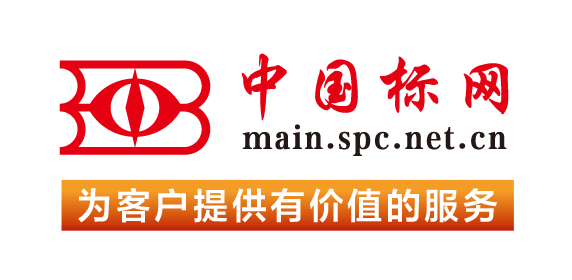This specification covers an iron-nickel-cobalt alloy for use in sealing to glass in electronic applications. The alloy shall conform to the chemical composition specified and shall be manufactured in the form of wire, rod, bar, strip, sheet, and tube, with each form available in the specified temper condition. For example, tubes shall be bright annealed and supplied in the annealed temper condition. Strip and sheet shall be of temper A, B, C, D, or E or in deep-drawing temper condition, while wire and rod shall be bright annealed and supplied in temper A condition unless specified otherwise. The material shall be smooth, uniform in cross section, composition, and temper, and free of scale, corrosion, cracks, seams, scratches, slivers, and other defects. Tests for hardness, tensile strength, thermal expansion, and transformation shall be performed and shall conform to the requirements specified.1.1 This specification covers an iron-nickel-cobalt alloy, UNS K94610 containing nominally 29 % nickel, 17 % cobalt, and 53 % iron, in the forms of wire, rod, bar, strip, sheet, and tubing, intended primarily for sealing to glass in electronic applications.1.2 The values stated in inch-pound units are to be regarded as standard. The values given in parentheses are mathematical conversions to SI units that are provided for information only and are not considered standard.1.3 The following hazard caveat pertains only to the test method portion, Sections 13 and 14 of this specification. This standard does not purport to address all of the safety concerns, if any, associated with its use. It is the responsibility of the user of this standard to establish appropriate safety, health, and environmental practices and determine the applicability of regulatory limitations prior to use.1.4 This international standard was developed in accordance with internationally recognized principles on standardization established in the Decision on Principles for the Development of International Standards, Guides and Recommendations issued by the World Trade Organization Technical Barriers to Trade (TBT) Committee.
定价: 590元 加购物车
This specification covers nickel-alloy steel plates intended primarily for welded pressure vessels. As a steel making practice, the steel shall be killed and shall conform to fine grain size requirements. The heat treatment requirements for all plates are presented, and all plates under Grades A, B, D, and E shall be normalized as required. The steel shall conform to the required chemical compositions. Two mechanical test requirements are presented that includes, tension test requirements and impact test requirements.1.1 This specification2 covers nickel-alloy steel plates intended primarily for welded pressure vessels.1.2 Plates under this specification are available with four strength levels and two nickel compositions as follows:Grade Nominal NickelContent % Yield Strength, min, ksi [MPa] Tensile Strength, min, ksi [MPa]A 2.25 37 [255] 65 [450]B 2.25 40 [275] 70 [485]D 3.50 37 [255] 65 [450]E 3.50 40 [275] 70 [485]F 3.50 2 in. [50 mm] and under 55 [380] 80 [550] Over 2 in. [50 mm] 50 [345] 75 [515]1.3 The maximum thickness of plates is limited only by the capacity of the composition to meet the specified mechanical property requirements.1.4 The values stated in either inch-pound units or SI units are to be regarded separately as standard. Within the text, the SI units are shown in brackets. The values stated in each system are not exact equivalents. Therefore, each system must be used independently of the other. Combining values from the two systems may result in nonconformance with this specification.1.5 This international standard was developed in accordance with internationally recognized principles on standardization established in the Decision on Principles for the Development of International Standards, Guides and Recommendations issued by the World Trade Organization Technical Barriers to Trade (TBT) Committee.
定价: 515元 加购物车
This specification covers molybdenum alloy steel plates, intended particularly for welded boilers and other pressure vessels. Plates under this specification are available in three grades having different strength levels: Grade A; Grade B; and Grade C. The steel shall be killed. The steel shall conform to the chemical requirements specified. Tension tests on plates shall conform to the requirements specified.1.1 This specification2 covers molybdenum-alloy steel plates, intended particularly for welded boilers and other pressure vessels.1.2 Plates under this specification are available in three grades having different strength levels as follows:Grade Tensile Strength, ksi [MPa]A 65–85 [450–585]B 70–90 [485–620]C 75–95 [515–655]1.3 The maximum thickness of plates is limited only by the capacity of the composition to meet the specified mechanical property requirements.1.4 The values stated in either inch-pound units or SI units are to be regarded separately as standard. Within the text, the SI units are shown in brackets. The values stated in each system are not exact equivalents; therefore, each system must be used independently of the other. Combining values from the two systems may result in nonconformance with this specification.1.5 This international standard was developed in accordance with internationally recognized principles on standardization established in the Decision on Principles for the Development of International Standards, Guides and Recommendations issued by the World Trade Organization Technical Barriers to Trade (TBT) Committee.
定价: 515元 加购物车
This specification covers round chromium-silicon alloy steel spring wire having properties and quality intended for the manufacture of springs resistant to set when used at moderately elevated temperatures. This product is not meant to be used for high cycle fatigue applications. Either ingot or strand cast steel may be made by any commercially accepted steel making process. The steel shall conform on heat and product analysis to the chemical composition requirements prescribed for carbon, manganese, phosphorus, sulfur, silicon and chromium. Annealed and cold drawn or oil-tempered wires shall conform to the specified mechanical properties including tensile strength. Requirements for tension and wrap tests as well as metallurgical requirements for etched surface testing and decarburization are detailed.1.1 This specification covers round and shaped chromium-silicon alloy steel spring wire having properties and quality intended for the manufacture of springs resistant to set when used at moderately elevated temperatures. This product is not meant to be used for non-static applications involving moderate fatigue stresses (see Specification A1000/A1000M) or high cycle fatigue applications (see Specification A877/A877M). This wire shall be provided either in the annealed and cold-drawn or quench and tempered condition as specified by the purchaser.1.2 The values stated in either SI units or inch-pound units are to be regarded separately as standard. The values stated in each system may not be exact equivalents; therefore, each system shall be used independently of the other. Combining values from the two systems may result in non-conformance with the standard.1.2.1 Within the text, the inch-pound units are shown in brackets.1.3 This international standard was developed in accordance with internationally recognized principles on standardization established in the Decision on Principles for the Development of International Standards, Guides and Recommendations issued by the World Trade Organization Technical Barriers to Trade (TBT) Committee.
定价: 590元 加购物车
This specification covers for several grades of carbon and alloy steel mechanical tubing, either hot-finished or cold-finished. The steel used in the mechanical tubing may be cast in ingots or may be strand cast. When steel of different grades is sequentially strand cast, identification of the resultant transition material is required. The seamless tubing is a tubular product made without a welded seam. It is usually manufactured by hot working steel, and if necessary, by subsequently cold finishing the hot-worked tubular product to produce the desired shape, dimensions and properties. The tubes shall be furnished in the following shapes: round, square, rectangular and special sections. Heat analysis shall be made to determine the percentages of the elements specified. If secondary melting processes are used, the heat analysis shall be obtained from one remelted ingot or the product of one remelted ingot of each primary melt. The tubing shall be coated with a film of oil before shaping to retard rust when specified1.1 This specification covers several grades of carbon and alloy steel seamless mechanical tubing. The grades are listed in Tables 1-3. When welding is used for joining the weldable mechanical tube grades, the welding procedure shall be suitable for the grade, the condition of the components, and the intended service.1.2 This specification covers both seamless hot-finished mechanical tubing and seamless cold-finished mechanical tubing in sizes up to and including 12 3/4 in. [325 mm] outside diameter for round tubes with wall thicknesses as required.1.3 The tubes shall be furnished in the following shapes, as specified by the purchaser: round, square, rectangular, and special sections.1.4 Supplementary requirements of an optional nature are provided and when desired shall be so stated in the order.1.5 The values stated in either SI units or inch-pound units are to be regarded separately as the standard. Within the text, the SI units are shown in brackets or parentheses. The values stated in each system may not be exact equivalents; therefore, each system shall be used independently of the other. Combining values from the two systems may result in non-conformance with the standard. The inch-pound units shall apply unless the “M” designation of this specification is specified in the order. In this specification hard or rationalized conversions apply to diameter, lengths and tensile properties. Soft conversion applies to other SI measurements.1.6 This international standard was developed in accordance with internationally recognized principles on standardization established in the Decision on Principles for the Development of International Standards, Guides and Recommendations issued by the World Trade Organization Technical Barriers to Trade (TBT) Committee.
定价: 646元 加购物车
 购物车
购物车 400-168-0010
400-168-0010










 对不起,暂未有“alloy”相关搜索结果!
对不起,暂未有“alloy”相关搜索结果!













